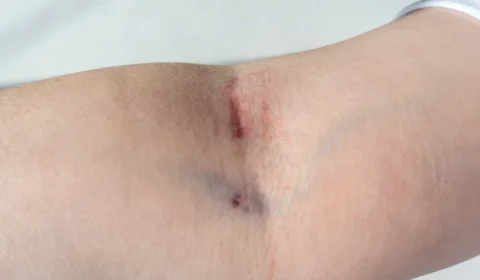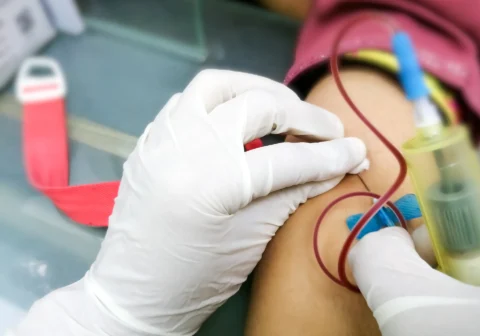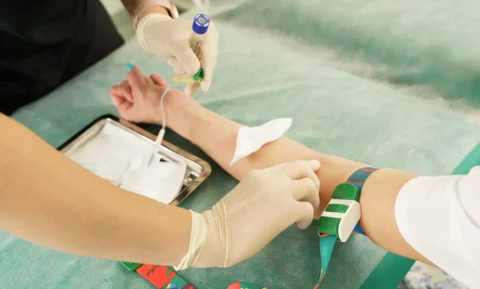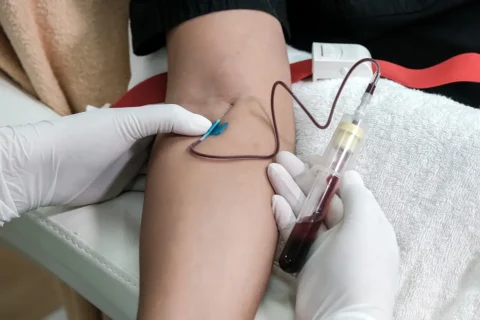The Ultimate Guide to Choosing the Right Skin Care Provider
Patients grappling with skin issues frequently turn to dermatologists or estheticians for solutions. To those not deeply immersed in the skincare arena, these professions may seem to overlap, leading to some confusion. But understanding their distinct roles is pivotal in seeking the right care for one’s skin.
So, what differentiates a dermatologist from an esthetician?
Dermatologists are medical experts who have undergone rigorous medical education and specialized training in skin health. They possess the capability to diagnose skin conditions, prescribe medications, and perform surgeries related to skin ailments. Often found in medical clinics or hospitals, they handle a broad spectrum of skin concerns, from acne and eczema to skin cancer screenings.
On the other hand, estheticians are skincare connoisseurs trained in beauty schools to enhance and maintain a healthy skin appearance. You’ll typically find them in salons, spas, and beauty clinics, offering services like facials, skin consultations, and other non-medical beauty treatments. They focus on the cosmetic side of skincare, emphasizing routine and rejuvenation.
Knowing who to approach – a dermatologist or an esthetician – is crucial for effective and targeted skin care. As we explore further, we’ll shed more light on the nuances of each profession, aiding in a clearer understanding for those seeking skin solutions.
Responsibilities and Services Provided
Dermatologists are medical professionals who specialize in the health of the skin, nails, and hair. With rigorous training in medical school followed by a dedicated dermatology residency, they are equipped to handle a wide array of skin-related issues. Some of their standard responsibilities encompass:
- Diagnose and treat various skin diseases such as eczema, psoriasis, and skin cancer.
- Prescribe medications for skin conditions.
- Provide expert guidance on managing the health of skin, hair, and nails.
- Conduct skin surgeries to treat cancers, moles, and cysts.
- Offer advanced cosmetic procedures such as Botox injections, dermal fillers, and laser surgeries.
- Perform skin biopsies and other diagnostic procedures.
- Provide treatments for hair loss and other hair-related conditions.
- Advise on the prevention of skin diseases and conditions.
Estheticians, by comparison, focus on the aesthetic and cosmetic side of skincare. Trained in specialized schools for skincare, they address the beauty and maintenance aspects of skin health. Their typical job description includes:
- Conduct thorough skin evaluations to determine the best cosmetic treatments.
- Offer treatments like facials, extractions, and masks to cleanse and rejuvenate the skin.
- Provide exfoliation treatments, such as microdermabrasion and mild chemical peels.
- Advise clients on the best skincare products and routines for their skin type.
- Administer hair removal methods like waxing, threading, or non-medical grade laser treatments.
- Offer relaxation services like facial massages or basic aromatherapy.
- Apply makeup, and provide services like eyelash extensions and eyebrow tinting.
- Maintain a sterile environment, ensuring all tools and equipment are sanitized properly.
Knowing the distinction between dermatologists and estheticians is crucial for patients seeking appropriate care, as both professionals play essential roles in the realm of skin health and beauty.
Training and Qualifications
Understanding the background and education of skincare professionals is paramount when seeking the best care for one’s skin. Here’s a deep dive into the training and qualifications of dermatologists and estheticians:
Dermatologists
- Medical Background: Dermatologists are medical doctors, which means they’ve undergone the comprehensive rigors of medical school.
- Specialization: Following their general medical training, dermatologists dedicate another three to four years to specialized dermatology residency training. This prepares them to diagnose and treat an extensive range of skin, hair, and nail conditions.
- Certification: After successfully completing their residency, they then face another hurdle: obtaining board certification. To be recognized as experts in their field, dermatologists get certified by the American Board of Dermatology, ensuring they’re updated with the latest in skin care and treatment protocols.
Estheticians
- Skincare Focus: Estheticians focus primarily on the aesthetic side of skincare. Their main goal is to enhance and maintain the beauty of the skin.
- Educational Path: To embark on this career, aspiring estheticians enroll in state-approved programs in esthetics or cosmetology. Depending on the program and state regulations, this can span anywhere from one to two years.
- Licensure: Upon successful completion of their chosen program, estheticians must then obtain a license to practice. This licensure is state-specific and signifies that they’re competent in delivering professional skincare treatments and consultations.
When to See a Dermatologist vs. an Esthetician

Both dermatologists and estheticians play vital roles in skincare, albeit in different capacities. While dermatologists are medical experts equipped to diagnose and treat various skin conditions and diseases, estheticians focus on the aesthetic maintenance and enhancement of the skin. Here’s a breakdown of when to consult each professional:
Dermatologist
- Addressing Serious Skin Conditions and Diseases: If you’re grappling with a skin issue that isn’t improving with standard treatments or remedies, a dermatologist should be your first port of call.
- Sudden Changes in Skin Appearance: New moles, unexpected rashes, or any abrupt alterations in your skin’s appearance warrant a dermatologist’s attention.
- History of Skin Diseases: Individuals with a prior history, especially of conditions like skin cancer, should have regular check-ins with a dermatologist.
- Advanced Cosmetic Procedures: For treatments that utilize sophisticated equipment or are invasive, such as certain laser hair removal treatments, fillers, or potent chemical peels, a dermatologist’s expertise is essential.
Esthetician
- Routine Skincare and Cosmetic Treatments: Regular treatments like facials, mild chemical peels, or microdermabrasion fall under an esthetician’s purview.
- Non-Invasive Cosmetic Treatments: Services such as waxing, threading, makeup application, and eyelash extensions are estheticians’ specialties.
- Product Recommendations: Estheticians offer advice on skincare products, helping you cultivate a routine tailored to your skin type.
Remember, estheticians aren’t medical practitioners and aren’t equipped to diagnose or treat medical skin conditions. When in doubt or dealing with a significant skin issue, always turn to a dermatologist.
| Criteria/Need | Dermatologist | Esthetician |
| Serious Skin Conditions/Diseases | ✓ Consult immediately | Not equipped for diagnosis or treatment |
| Sudden Skin Changes | ✓ Should be your first contact | Consult for aesthetic concerns, but not for medical diagnosis |
| History of Skin Diseases | ✓ Regular check-ups essential | Not applicable |
| Advanced Cosmetic Procedures | ✓ Expert in invasive/sophisticated treatments | Limited to non-invasive cosmetic treatments |
| Routine Skincare Treatments | Can offer, but typically at a higher medical grade | ✓ Specialized in this |
| Non-Invasive Cosmetic Services | Some might offer, but focus is medical | ✓ Primary service offered |
| Skincare Product Recommendations | Can provide, especially for medical-grade products | ✓ Expertise in wide range of cosmetic products |
| Medical Diagnosis & Prescription | ✓ Licensed and trained | Not applicable |
| Recommendations & Consultations | Both personal and online reviews, plus consultations | Both personal and online reviews, plus consultations |
| Primary Focus | Medical skin health | Aesthetic skin appearance |
Choosing the Right Skincare Professional
- Referrals: Begin your search by asking friends, family, and your primary care doctor for their recommendations. Personal experiences often provide insights that you can’t find elsewhere.
- Online Research: Dive deep into the internet to investigate potential professionals. Online reviews, ratings, and even before-and-after photos can offer a glimpse into a professional’s work and patient satisfaction.
- Consultations: Always set up a face-to-face meeting before committing to a skincare expert. This not only allows you to gauge your comfort level with them but also gives you a chance to evaluate their facility, methods, and overall approach.
- Credentials and Training: Check the qualifications of your potential skincare professional. Whether it’s a dermatologist or esthetician, ensuring they have proper training, and licensing, and are in good standing with professional organizations adds a layer of trust.
- Communication Style: It’s essential to find a professional whose communication style aligns with yours. You want someone who listens to your concerns, provides clear explanations, and offers informed recommendations.
Elevate Your Aesthetic Expertise with FACE Med Store

The skincare industry is constantly evolving, with new techniques, products, and technologies emerging regularly. Whether you’re a budding esthetician aiming to enhance your cosmetic skills or an aesthetician keen on deepening your medical aesthetic knowledge, FACE Med Store is your ultimate resource.
Our meticulously curated online training courses are designed to elevate your skill set, ensuring you stay at the forefront of the aesthetic field. But that’s not all. With our extensive range of premium tools and equipment, we’ve got you covered for all your professional needs, from basic cosmetic tools to advanced medical spa equipment.
Don’t just be a part of the change; lead it. Dive into our comprehensive course collection and equip your practice with the best in the industry. Reach out to FACE Med Store now and chart your path to becoming an industry leader.






